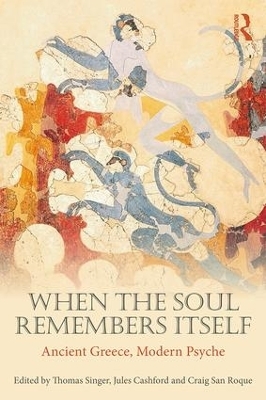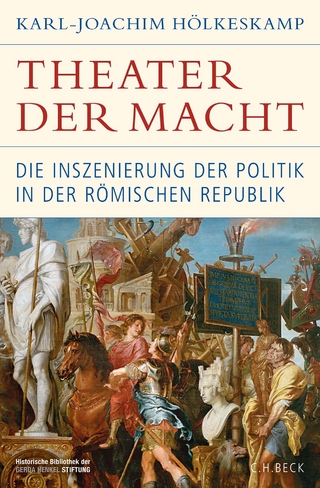
When the Soul Remembers Itself
Routledge (Verlag)
978-1-138-31075-9 (ISBN)
Do the ancient Greek poets, playwrights, philosophers and mythologies have anything to say to modern human beings? Is their time finished, or do their insights have as much relevance to the human condition as they did 2,500 years ago? When the Soul Remembers Itself continues the exploration of the connections between ancient and modern psyche with a resounding affirmation of its ongoing relevance.
Uniquely combining poetry, drama and storytelling in a pioneering collection, an international selection of contributors each explore a character, myth or theme from ancient Greece in the context of its relevance to the modern psyche. Each author enters an imaginative dialogue that pieces and bridges together fragments of the past with the present, exploring themes such as initiation, war, love, paranoia, tragedy and the soul’s journey through the vicissitudes of life on earth, through characters such as Ajax, Persephone, Orpheus, Electra, the Apostle Paul, Perpetua and Jocasta. Understanding myth is crucial in Jungian analysis, and by connecting the modern person with the age-old questions of life and death, the contributors bring truly archetypal narratives to life and speak to the human condition throughout the ages.
When the Soul Remembers Itself will be of great interest to academics and students of Jungian and post-Jungian studies, classics, ancient religion, archetypal studies and mythology. As the contributors’ conclusions apply to both contemporary theory and clinical practice, it will also appeal to Jungian analysts and psychotherapists in practice and training.
Thomas Singer, MD, is a psychiatrist and Jungian psychoanalyst with interests in symbolic imagery, cultural studies and the relationships between ancient Greece and modern psyche. He has written and edited many books and articles with most recent emphasis on the relationship between politics, the collective psyche and mythology. He is co-editor of Ancient Greece, Modern Psyche: Archetypes Evolving (Routledge). Jules Cashford is a Jungian analyst and the author of previous books on Greek mythology, including a translation of The Homeric Hymns. Craig San Roque is an analytical psychologist who has lived in remote Central Australia for over twenty-five years. He writes on complex cultural matters and indigenous Australian affairs.
Synopsis
Dedication
List of figures x
Editors
Contributors
Acknowledgments
Introduction Thomas Singer, Jules Cashford, and Craig San Roque
The invocations Jules Cashford and Craig San Roque
1 A fool’s guide to folly Thomas Singer
2 The mystery of Dionysos: cultivating the vine of life Virginia Beane Rutter
3 The madness of Ajax Luigi Zoja
4 Persephone’s Heart Craig San Roque
5 Orpheus remembered Jules Cashford
6 Paul and Perpetua: about cultural complexes in early Christianity Joerg Rasche
7 Dancing the dance on Eve Jackson
8 The judgment of Electra Craig San Roque
IntroductionRecitation
9 Getting a grip on Proteus: tracking telos from three snake dreams in Aeschylus’s Oresteia to his lost satyr play Craig E. Stephenson
10 Reading Jocasta Tamar Kron
11 Greek nihilism and the psychology of decadence Evangelos Tsempelis
Closing: "The God Abandons Antony," C. P. Cavafy (1863–1933) 213
Index 214
| Erscheinungsdatum | 31.07.2019 |
|---|---|
| Zusatzinfo | 10 Illustrations, black and white |
| Verlagsort | London |
| Sprache | englisch |
| Maße | 156 x 234 mm |
| Gewicht | 382 g |
| Themenwelt | Geschichte ► Allgemeine Geschichte ► Altertum / Antike |
| Geisteswissenschaften ► Psychologie ► Psychoanalyse / Tiefenpsychologie | |
| ISBN-10 | 1-138-31075-1 / 1138310751 |
| ISBN-13 | 978-1-138-31075-9 / 9781138310759 |
| Zustand | Neuware |
| Haben Sie eine Frage zum Produkt? |
aus dem Bereich


